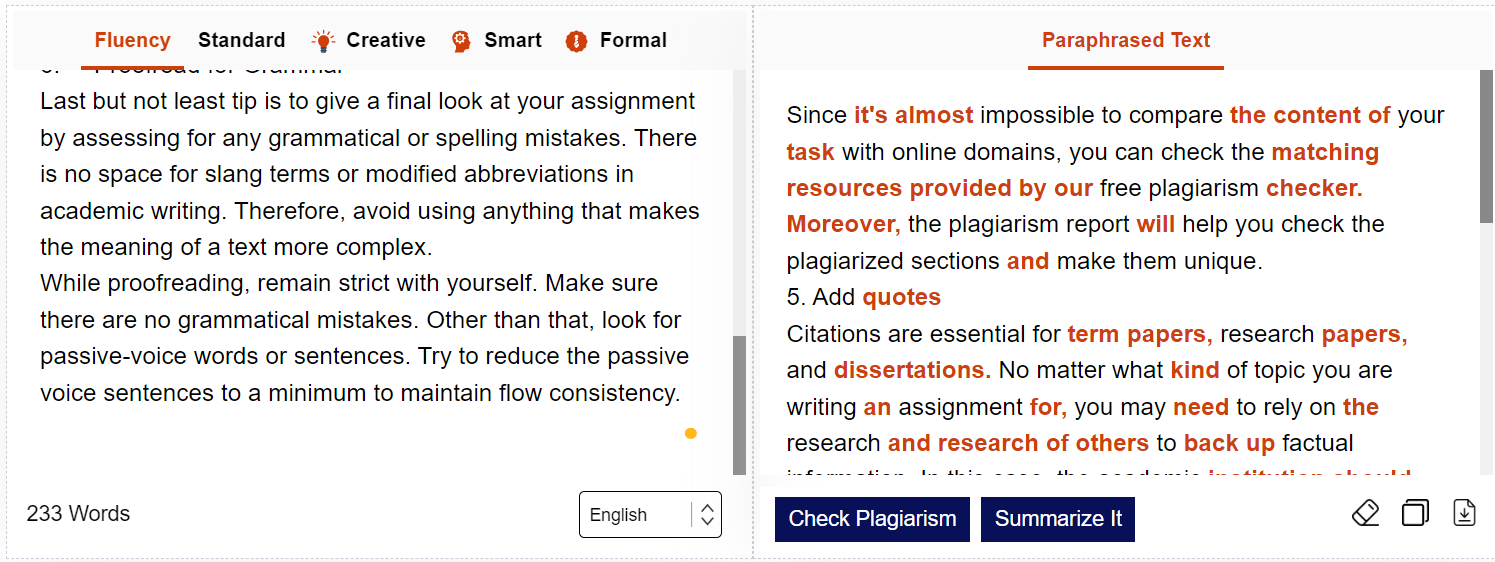
Academic writing is essential to learn for students if they want to secure better grades in their coursework and studies. Students who are familiar with writing skills can apply information more appropriately.
The written information`s structuring and readability are essential in academic writing. If you`re mentioning a borrowed piece of information in your article, it`s better to add a complete reference.
Moreover, the assignment should be free of plagiarism to maintain academic integrity. In addition to good readability, there is a lot more to quality academic writing. In this article, we will share six tips to improve your academic writing, which can help you secure better grades.
- Use Active Voice
Many students make the mistake of writing information in passive voice instead of active voice. Information written in passive voice becomes more challenging to read. The passive voice may sometimes change the context`s meaning by inversing the intended words.
Active voice helps to keep information straightforward. Besides the formal information, evaluators also seek direct answers in your academic writing, which should be delivered in an active voice.
- Create an Outline
The next important thing in academic writing is the outline. Academic writing requires extensive research and should be appropriately applied with a constant flow and structure. An overview can help you to develop a blueprint for your content.
You can create an outline by mentioning the main points in headings from your research. Students can fill these main points or titles with information under proper explanation related to the assignment`s answer or topic.
- Choose the Right Vocabulary
The choice of words in academic writing is much more different than what you write in a blog or social media post. Academic writing is strictly based on facts, which requires formal vocabulary.
In this case, students should avoid using slang words or self-made abbreviations. If you cannot find the right set of words by yourself, you can use a rephrase tool to write in a specific writing style.

A rephrase tool gives you various options for writing styles and allows you to rephrase content as often as you want. Each word has dozens of synonyms. All you have to do is find the right set of words that fit the formality and context of your academic discussion.
- Check for Plagiarism
Once you have written the academic material, check for plagiarism before the final submission. Plagiarism is unacceptable and unbearable in any writing domain. The same goes true for academics. But instead of temporary penalties, plagiarism can permanently ruin your reputation as a student.
Therefore, students should take assistance from a free plagiarism checker that at least provides an overall percentage of plagiarized content. Many educational institutes suggest attaching plagiarism reports with academic work to support the credibility of information.

Since it`s nearly impossible to compare your assignment`s content with the online domains, you can check the matched resource the free plagiarism checker provides. In addition, the plagiarism report can help you check the plagiarized sections to make them unique.
- Add Citations
Citations are essential for every assignment, research paper, and thesis. No matter what type of topic you are writing the assignment about, you may have to rely on someone else`s studies or research to support your factual information.
In this case, the academic institutes must add citations for a credible source, study, or research that can become supporting evidence for your educational material. However, make sure to look for the asked citation method from your assignment writing guidelines.
If your assignment writing guidelines have not specified any citation method, you can mention some commonly used citation styles, including Harvard, Chicago, and MLA.
- Proofread for Grammar
Last but not least tip is to give a final look at your assignment by assessing for any grammatical or spelling mistakes. There is no space for slang terms or modified abbreviations in academic writing. Therefore, avoid using anything that makes the meaning of a text more complex.
While proofreading, remain strict with yourself. Make sure there are no grammatical mistakes. Other than that, look for passive-voice words or sentences. Try to reduce the passive voice sentences to a minimum to maintain flow consistency.
Conclusion
Academic integrity lies in the student`s ability to read and apply the information. If you cannot maintain the uniqueness of your assignments, the chances of direct failure become probable. Besides that, you must ensure good readability and proper referencing of borrowed information.
This article discussed the 6 essential tips for improving your academic writing abilities. Each of these can be applied to assignments, a thesis, a research paper, or even report writing in academics. We hope our tips were helpful for you in understanding the concept of academic writing.
